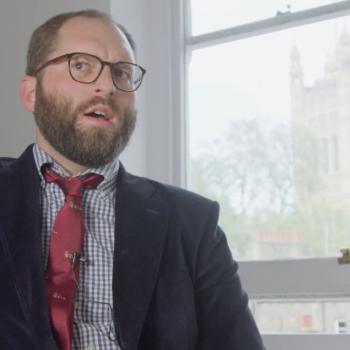The National Association of Scholars, an organization of conservative academics, has put out an FAQ page on what is wrong with the new Advanced Placement U. S. History exam. It sums up well the problems also with the Common Core, contemporary text books, and the state of the history profession in general.
The point is not that America doesn’t have skeletons in its closet and that we need to study those bad parts of our history. It’s that these have become the only emphasis, and that other important facets of our history (the concepts behind our constitution) and just facts in general (why we fought World War II) are left out.
From AP US History: FAQs | National Association of Scholars:
3. Why has there been so much controversy over the new APUSH standards?
- Don’t the APUSH standards simply reflect the updating and new scholarship that’s being turned out by leading academics at our universities?
Yes, they do, and that’s precisely the problem. For a very long time, academic historians have been locked in a conceptual cage that seems obsessed with race, class, gender, sexuality, inequality, etc., etc. It’s almost impossible to find once-mainstream subfields such as military or diplomatic history, or traditional surveys that focus on the chronological sequence of the major events in US history. We closely documented this trend in our 2013 study, Recasting History: Are Race, Class and Gender Dominating American History?. History Ph.D.s who venture outside of this grid commit virtual professional suicide. The new APUSH standards rigorously hew this line, and will inevitably make it more difficult for AP teachers who want to do anything else. An occasional contrarian may pop up here and there, but the majority of high school teachers nowadays are very long on pedagogy and short on historical knowledge. Most likely, they’ll take the easy route by sticking to the APUSH outline.
- But why is it wrong to examine the dark spots in American history? Shouldn’t students be exposed to the less attractive side of the American experience?
There’s nothing wrong with that idea at all, and the critics don’t dispute that our history includes a number of unpleasant episodes. In the first place, it’s simply inaccurate to suggest, as supporters of APUSH often do, that slavery and its legacy, the mistreatment of native peoples, and other injustices have simply been ignored, with students getting only the roseate Parson Weems version of American history. Indeed, the previous AP US history course used by the College Board contained a great deal of social history and references to social injustices. What’s missing here is any sense of proportion: the new APUSH standards seem to present an inverted rendition of Parson Weems, with a relentless, almost exclusive, emphasis on racism, hierarchy, social inequality and the growth of capitalism. And since students who “place out” probably won’t study US history again, this drastically truncated, ideologically skewed version will frame their thinking about American history for the rest of their lives.
- Aside from the ideological slant, what else is wrong with APUSH?
Mainly what the course omits: the major events, themes, personalities and governing political institutions of American history and civilization are given exceedingly short shrift. Students will learn little or nothing about the Founding period and the constitutional republic which it established, or of the ideas and ideals which underlay it. Major historical figures such as Thomas Jefferson, Benjamin Franklin, George Washington or Alexander Hamilton are mentioned only as adjuncts to particular themes, such as class privilege, but not for their seminal influence on American history. It may be true that slavery was sanctioned by the Constitution of 1789, or that women were unable to vote, but shouldn’t the primary emphasis focus on the intellectual underpinnings of the Constitution elaborated in Federalist 51, where James Madison explains why “checks and balances” are so essential to reining in power and preserving freedom? In the same vein, there’s nothing wrong with a sidebar focused on the role of women in WW II, but isn’t it paramount that students understand why that war was fought and what was at stake? If there is a Big Picture overarching the course of American history, students will get no sense of it from APUSH.
- Why do opponents object to the new standards’ emphasis on critical thinking skills, which would help students to become “apprentice historians? Wouldn’t this benefit students by teaching them to think and analyze?
To be an historian, apprentice or otherwise, you need to know a lot of content: especially what happened and when it happened. As noted above, AP students get very little of this from APUSH and won’t have much solid history to analyze. In place of chronological sequencing, the APUSH course approaches American history through a set of 7 themes: identity; work, exchange and technology; peopling; politics and power; America in the World; Environment and geography – physical and human; ideas, beliefs and culture. On the one hand, these categories appear to leave a great deal of latitude to individual teachers, who could supply a wide range of subject matter, depending on their individual interests or goals. At the same time, there’s nothing in them to ensure that students will examine the Founding in detail, the importance of religious beliefs in colonial America, or the fervent isolationism which impeded Franklin Roosevelt’s foreign policy in the 1930’s. Most likely, students will be led to emulate the same sort of “critical thinking” currently popular at the college level, which seems to aim at pushing them toward specific conclusions about the usual race/class/gender/inequality “social justice” themes. Genuine “critical thinking” might result in a challenge to these ideas, but that’s a rarity at the college level, and likely will follow suit at the secondary level. As a result, the course will probably produce a fair number of social activists, but precious few historians.














